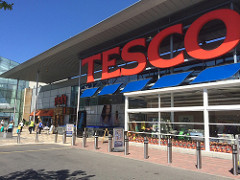Fresh Produce News
The EU’s average fruit and veggie intake has gone up to 364.58 g/day/capita in 2021. It’s a 2.19% increase from last year, and 1.27% higher than the previous 5-year average. However, it’s still almost 10% less than the 400g/day/capita minimum recommended by the World Health Organization.
The fresh produce market size in the EU-27 reached £74.35m tonnes in 2021. This growth aligns with the positive trend seen since 2020, thanks to the Covid-19 pandemic.
But, the economic crisis following the war in Ukraine in 2022 has put fruit and veggie consumption in Europe under pressure. Consumer purchasing power has been affected, and food expenditure has been limited.
During crises, consumers tend to move towards less healthy diets. They see them as more energy-satisfactory and cheaper than fruits and veggies. This is why Freshfel Europe believes that the post-pandemic consumption growth has been lost. Consumption has declined by over 10% in many cases.
According to the Freshfel Europe Consumption Monitor, only a few EU countries reached the recommended goal of consuming at least 400g of fresh fruits and vegetables every day.
Freshfel Europe is concerned that a 2019 Eurostat survey shows that 33% of EU consumers consume no fruit or veggies every day. Another 55% do not reach the recommended five portions a day. The association is also worried about the low consumption rates seen amongst the younger generations and in lower-income households.
Freshfel Europe thinks that more needs to be done to encourage consumption. They believe that the fruit and vegetable sector should build on the momentum of increased consumption. This should be based on the benefits of fresh fruit and vegetables for the planet, the climate, and the consumers’ health.
Freshfel Europe also wants to counter the misperception that fruits and vegetables are expensive. They believe that the sector should demonstrate its affordability and nutritional value. This would help move consumers towards a plant-based diet.
Adding one piece of fruit or vegetable to the daily diet of European consumers could help boost consumption. This could bring the European market size up by almost 20% or 15m tonnes.
Freshfel Europe concludes that a healthy diet that meets the minimum recommendation remains affordable. It can be achieved for less than £2/day.
Information derived from fruitnet.com.
The weather was kind to us on Friday 21st June 2019 for our annual golf day held at The Luffenham Heath Golf Club. With the weather being more autumnal over the last few weeks, there was definitely some worry in the run-up that we may have to postpone. Luck was on our side however and the sun did appear.
A total of nine teams took part, made up of some of our valued clients from the Food Manufacturing, Fresh Produce and Horticulture sectors. The golf was mixed at best, with some fantastic scores and some awful ones, but mainly great fun was had by all.
Recruitment Director, Jason Kilbride said:
“The annual golf day is always a day in the calendar which we look forward to. It’s a great opportunity to spend time with clients who have supported us and continue to work with us throughout the years. Luffenham Heath is a beautiful setting and a challenging day.”
We would like to say a huge thank you to all that attended and in doing so, helped to raise some money for our charity. Special thanks to our Office Manager, Natalie Pask who put in so much effort organising the day, which ran very smoothly.
See you again next year!
RESULTS:
1st Prize – Gareth Silverwood – Munoz – 40 points
2nd Prize – Julian Wright – Ripenow – 34 points
3rd Prize – Mike Harpham – Consultant – 34 points
Ladies Prize – Rachel Gedney – TH Clements
Nearest The Pin – Mike Harpham – Consultant
Longest Drive – Louis Meryon – Addo
Team Prize – Gareth Silverwood – Munoz
Richard Dyde – Vitaal
Ian Ball – Total Produce
Mark Player – Munoz
Wooden Spoon – Leigh Jones – Total Produce Food Service
Bandit – Gareth Silverwood (40 points off 28 Handicap!!)
Cutting costs and improving overall efficiencies are some of the biggest priorities for the Operations and Supply Chain professionals we at Henderson Brown work with. New technological advances have transformed the way that food manufacturing businesses operate either reducing costs or simply increasing information flow.
2019 is set to present several interesting trends which Henderson Brown feels are significant and of real interest; Artificial Intelligence (A.I.) and cloud-based software systems are transforming the way that businesses interact with one another. FuturMaster, the systems provider which works with the likes of Heineken and PepsiCo have highlighted the value in this. In an interview with the website, Food Manufacture, earlier in March 2019, FuturMaster sales manager Martin Sewell said
“More data is becoming accessible and senior management are beginning to see the value of it much more than they have done.”
Sewell explained that software firms which focus on supply chain are now having to adjust themselves in line with this. It is important that companies which produce food and drink are proficient in the ability to capture all the additional data they are generating. Moving on from that, they need to be able to analyse it appropriately so that they can redeem the efficiencies they are searching for.
The supply chain for the food and beverage manufacturing sector is highly complex. The ability to drill down into the consumer demand data and how this affects a business (and their competition) is of huge competitive importance. Understanding this data and the clear insight that it gives will lead to making well thought out predictions and should direct a firm to provide an almost seamless delivery service across multiple sales channels. Even online sales channels which can be difficult to predict are becoming easier due to the availability of data instantly.
The market is now seeing more reliance and requirement for cloud-based supply chain software which is then being used in conjunction with A.I. As more and more data is gathered then stored, A.I. works to analyse the trends and aid with more efficient planning – A.I. performs the tasks more quickly and efficiently than a human brain too, thus cutting manpower costs and the removal of potential human error. The result should enable for forecasts to be made more precisely. Furthermore, the possibilities of supermarket shelves becoming out-stocked or overstocked would be reduced with the subsequent reduction in stock wastage.
Improvements to overall supply-chain efficacy and finances all round!
At Henderson Brown, we have listened to how our clients are changing and about how the methods they have implemented to achieve these changes have impacted their business. For example using GPS tracking connected to smart sensors, which results in the improved accuracy of the product’s location in the supply chain. Companies can acquire assurances about the condition of goods and gauge what quantities are or are not needed and where. Every product can pretty much be tracked to the person who packed it, the source and the consumer who bought it.
Of the various roles we have been asked to recruit for, the competencies of future employees now extend to understanding and appreciating the importance of data and how it is used. Being data savvy with an analytical mind is a key requirement.
The need to produce quality products on time, in full and at the lowest cost possible whilst also minimizing the amount of waste made increases continually as margins come under more pressure. There is, therefore, a constant demand for employees to continuously improve and drive out costs. Going further, these employees need to ensure that the supply chain runs as smoothly as possible so that a business matches the demands of their customer.
Will Malcolm and Joe Hill both work in the Operations and Production division at Henderson Brown and of these job requirements they say:
“We are speaking with many more candidates that are excited at the way they are having to integrate new systems into their roles. They see the benefits and the opportunities on offer to themselves and the businesses they want to work for. On top of this, our clients want to employ people that appreciate how the various advances now present a greater understanding of the consumer’s needs and relish the opportunity to expand their technological know-how.”
What other technological advances do you see as being of influence in 2019?
Check out the latest live Operations and Production roles, here.
Brexit: a conundrum of magnitude. Will it happen? Won’t it happen and if it happens, will it go through with or without a deal? With uncertainty looming most ominously, we can only speculate just what the impacts will be.
It is suggested that the UK is only 60% self-sufficient when it comes to food, according to government figures, and 70% of its food imports come from the EU – but then we have become a nation addicted to avocadoes and year-round iceberg lettuce, will we starve as a nation? Most certainly not but availability and choice will be restricted. The departure with or without an agreement will have upheaval on what we see on our shelves after the day that Brexit does arrive.
Are we going to face situations where food is in short supply? Predictions suggest that within days of the UK’s European Union departure, shortages could occur. But what we do know is that necessity is the mother of all invention and we will still be eating – what are consuming though, might be different and might cost more for a while. However, as a nation it is likely we will not starve.
Many experts however across the British food industry, a great number of whom are producers, farmers and retailers which the British public depend on, are genuinely very nervous. No one doubts that there will be potential disruption to the food supply chain which could result in unharvested produce and empty shelves in the supermarkets. However, the supply chains from Europe have products to sell, and they simply can’t shift it anywhere else. Conversely the British consumer wants to buy them.
So where will this lead us? The truth is no one has a clue!
Towards the end of January, CEO of the UK trade body, Food and Drink Federation, Ian Wright said that a no deal Brexit would be “potentially catastrophic” and the Prime Minister was not giving adequate attention to the concerns held by the food industry. Such apprehensions have been heightened since the deal on the table was thrown out of parliament in January. Speaking with Business Insider earlier in February, Wright said:
“We keep telling them [the government] that it [a no-deal Brexit] is potentially catastrophic but it is difficult to know just how much they’re listening.”
In an effort to mitigate a disastrous fallout, various food manufacturers have started to stockpile ingredients and finished products out of fear of supply shortages. CEO Siobhan Talbot of Irish dairy and sports nutrition company, Glanbia, spoke with The Irish Times and told the newspaper:
“We have stocks in the UK, more than we would normally have. We are very much planning for a no-deal at this stage, we have all the supply chain alternatives, all those pieces that one would expect but that does not mean that that would be easy and that does not mean that that wouldn’t be without its implications.”
Of course, Brexit isn’t just going to impact on food production; anything linked to the industry will be at the mercy of the subsequent halo effect. Most of the food safety laws in the UK stem from legislation passed by the EU. This includes the legal necessity for food businesses to use food safety management systems which are based on the codes of HACCP for food safety management. Questions have arisen as to whether or not such legislation will be retained. It is unlikely to change as the approach is a global one and importantly, The World Health Organisation (WHO) established international food standards which act as a legislative base for countries throughout the world. To throw out the rule book would be pure madness then. It is likely that existing food safety legislation will simply be ‘cut and pasted’ and then restamped with a Union Jack instead of a European flag.
The legislative framework is not nonsense, however, and they provide a solid foundation for food safety to operate. It is believed therefore that if and when Brexit does happen, a review of the legislation will inevitably transpire, but it is unlikely that much in term of amendments would need to follow. If the requirements are unnecessarily cumbersome, then change may happen, and this could be for the better.
Labelling and packaging of goods which are intended for export from the UK into the EU will need to adhere to and comply with EU law. As such making these changes for the sake of it, would not be prudent and could be harmful. The biggest predicted changes are to food safety however; the number of enforcements visits may be decreased to ease the legislative weight.
Future labour availability is probably going to be one of the biggest impacts on British Food and Fresh Produce from leaving the EU. We have as a nation had a ‘cheap labour tap’ which has been flowing since 2004. Immigration, one of the bugbears of many who voted out, has fed the British economy with abundant, motivated and very often well trained and educated labour which has worked in the food factories and packhouses as well as in the fields picking fresh produce. This tap has effectively been turned off and this will have consequences for the industry. Stories of produce rotting in the fields are rare and are probably more down to flushes causing gluts, or over planting than pure labour availability. However the indigenous British population has historically been reluctant to pick fresh produce from the fields, so will this change?
Most certainly not, so how will it get picked? The answer is going to be in the short term enhanced labour rates to attract people to undertake these tasks and in the longer term, automation. But, despite the press releases from the universities working on these projects, realistically these are 3-5 years away. The cost of production and subsequently the prices of fresh fruit and vegetables will increase. Therefore it will be interesting to see whether the retailers will absorb these costs or pass them on.
Is it coincidental that we have seen wage growth creep above inflation for the first time in over a year and we are seeing levels of unemployment fall to the lowest since the mid-1970’s? As the labour tap has turned off, are we seeing the forces of restricted labour supply and continued demand force up wages? Let’s see.
 Logistically, getting food into and out of the UK once Brexit has occurred is likely to change. Some have made a guesstimate that if an additional two minutes are required to check trucks and lorries, this could generate a 17-mile tail-back within a single day. The Dutch fruit and vegetable exporters are working on a lorry passport scheme which is designed to reduce these potential problems by creating a fast track for their goods. They want to sell it and the consumers will want to buy it – will market forces inevitably not come in to play?
Logistically, getting food into and out of the UK once Brexit has occurred is likely to change. Some have made a guesstimate that if an additional two minutes are required to check trucks and lorries, this could generate a 17-mile tail-back within a single day. The Dutch fruit and vegetable exporters are working on a lorry passport scheme which is designed to reduce these potential problems by creating a fast track for their goods. They want to sell it and the consumers will want to buy it – will market forces inevitably not come in to play?
Some businesses who we speak to have taken on a more stoic standpoint and are getting on with it, rather than waiting to see what happens. Some of the shrewder operators have been getting into the swing of things with new product development and focussing on creating new or alternative items which can be sourced locally and do not come directly from the continent.
From an environmental perspective, the reduction in food miles could be a welcome result from the exit process. Several of the more innovative businesses have investigated specifically how food mileage can be shrunk or negated and developed new initiatives that specifically tackle this issue. One good example is growing food aquaponically (a fusion of aquaculture and hydroponics). If this approach is applied to growing salad items, it is considered that food miles can be cut down to almost zero. This could remove problems such as those faced in Spain in early 2017 due to unseasonably cold weather that had the knock-on effect of a salad shortage in the UK. Shrinking the number of miles food must travel or negating the carbon footprint associated with growing and transporting produce, at least, will have a positive effect on the environment.
New technology is not always the answer though, but adaptations to ones already in existence or indeed considering the opportunities of looking at readily available alternatives. With regards to market supply, it would be necessary to review supply bases to ensure that the best value is on offer. Understanding where the potential kinks in the chain are (regardless of a crisis, if that is indeed what Brexit is), is necessary to prevent a weakness causing a snowball effect. The result of carrying out such reviews, therefore, should reveal what unnecessary efforts can be removed with the result being, improved efficacy of the supply chain.
On the whole, the outlook of what the impacts of Brexit will be on the food industry are in the short term more negative than positive. But – we simply don’t know what will happen – if anything will change at all! The uncertainty is definitely affecting business confidence as we have clients who have delayed investment projects until April and have held back on some senior appointments until there is more clarity.
But until B-Day arrives, and that specified date is still up in the air, no one can say with absolute confidence just want the future holds. Until then, is it business as usual? To keep the nation fed, it will have to be.
Henderson Brown Golf Day 2018
Another fantastic event held at Luffenham Heath Golf Club, supporting our charity of the year The Green Backyard. Well attended with figures from across the Food Manufacturing, Fresh Produce and Horticulture sectors, the weather was glorious and although the golf was challenging, all had a thoroughly enjoyable day. Thank you to all of our attendees for their continued support.
Our winner was Steve Rudge; after plenty of practice in the UAE over the last year he held of competition from last years winner Jason Smith. Both definitely marked for a handicap cut next time around! We look forward to seeing you all again next year.
Overall Winner: Steve Rudge
Runner Up: Jason Smith
3rd Place: Andy Coaten
Nearest The Pin: Steve Maxwell
Longest Drive: Peter Ellis
Winning Team: Steve Rudge and Peter Fry
Avocados will now join bananas in the range, which it is hoped will be taken up a level by the new man in charge of Mack Wholesale Ltd.

Mack is celebrating a decade of successful years for its Mack Premium brand with a fresh design and new product launch.
Mack Premium bananas have now been a familiar product on the wholesale scene for a decade, and they will now be joined by an avocado range.
And stylish new boxes are designed to stand out from the crowd.
A Mack spokesperson told FPJ that a loyal customer base in the wholesale markets has helped the sales desk at Mack International build volumes to the point where Mack Premium now outsells almost all other brands – with volumes set to grow much further in 2016 thanks to a renewed focus on the brand and to greater investment in marketing support.
Mack International brand manager, Gary Canning, said: “The Mack name is well known at wholesale, standing for quality, value and trust. We’re hugely proud of the growth in the Mack Premium Banana brand, and we’re approaching the launch of this new look with renewed energy and excitement. There’s a programme of investment in promotions with our customers through the year in support of the brand’s sustainable growth.”
The new avocado launch has generated significant interest in the markets, Canning added: “The recent sales performance for avocados is very impressive, with sales volume increasing by 41 per cent in the last year (Kantar Worldpanel, 52 weeks to 3 January 2016).”
Steer the company into the next decade of trade will be Charles Rees, the new man at the helm of Mack Wholesale.
He joins the Fresca Group company from his previous role as managing director at Vitacress Sales, a company with whom he spent 21 years.
He’s looking to drive sales and performance in the competitive top tier with the Mack Premium brand. Rees said: “Our sales teams are truly proud to sell products bearing the Mack name. We have ambitious targets for brand growth this year, developing our customer base and delivering greater volumes for our growers. The future for Mack Premium looks as bright as our new boxes.”
French importer expands presence in Central and Eastern Europe with new facility close to Hungarian capital

French tropical fruit importer Compagnie Fruitière has opened a new Hungarian subsidiary to expand its presence in Central and Eastern Europe.
Compagnie Fruitière Hungary will now market all products in the region, previously distributed through local partners.
The company will now use its own ripening facility to develop its distribution network, located on near major roads and on an industrial estate close to Budapest.
It is equipped with the latest ripening technology, with 12 two-tier ripening rooms, each holding 24 pallets and with a ripening capacity of 20,000 boxes a week. The facility is IFS-certified (International Food Standard).
Tesco has been given a month to improve how it treats suppliers following an investigation by the Groceries Code Adjudicator (GCA)
The GCA was concerned about three key issues: Tesco making unilateral deductions from suppliers, the length of time taken to pay money due to suppliers and, in some cases, an intentional delay in paying suppliers.
Over the course of her investigation, adjudicator Christine Tacon found delay in payments arising from data input errors, duplicate invoicing, reductions to maintain Tesco margin, as well as unilateral deductions resulting from forensic auditing, short deliveries and service level charges.

She said: “The sums were often significant and the length of time taken to repay them was too long. One supplier was owed a multi-million-pound sum as a result of price changes being incorrectly applied to Tesco systems over a long period. This was eventually paid back by Tesco more than two years after the incorrect charging had begun.”
Tacon advised Tesco to “hold off” making unilateral decisions from money owned for goods supplied, to give suppliers 30 days to challenge any proposed deductions and that the retailer correct any pricing errors within seven days of notification.
Tesco has been given four weeks to say how it plans to implement recommendations by the GCA, with regular reports demanded on its progress.
Concerns were also raised over payments for better positioning on the retailer’s shelves. Although no evidence of direct payments were found, Tacon is to launch a consultation into indirect methods of obtaining better positioning. “I am concerned that, as a result of these practices, the purpose of the Code may be circumvented to the detriment of smaller suppliers who cannot compete with payments for better positioning, category captaincy or to participate in range reviews,” said Tacon. “I have decided to launch a formal consultation with the sector, involving both retailers and suppliers, to help me reach a firm conclusion on whether these practices are acceptable.”
Dave Lewis, Tesco group chief executive officer, said: “In 2014 we undertook our own review into certain historic practices, which were both unsustainable and harmful to our suppliers. We shared these practices with the Adjudicator, and publicly apologised. I would like to apologise again. We are sorry.
“I am grateful to the Adjudicator for the professional manner in which the investigation has been conducted. We accept the report’s findings, which are consistent with our own investigation.
“Over the last year we have worked hard to make Tesco a very different company from the one described in the GCA report. The absolute focus on operating margin had damaging consequences for the business and our relationship with suppliers. This has now been fundamentally changed.
“In January 2015, we made material changes to our business that addressed the majority of the historic practices referred to in the report. We have changed the way we work by reorganising, refocusing and retraining our teams and we will continue to work in a way which is consistent with the recommendations.”
Leading CEOs and ministers from around the world have become ‘champions’ of new partnership on food waste
Tesco chief executive has been named as chair of a new high-profile global campaign to reduce food waste.

The movement, named Champions 12.3, was unveiled at the World Economic Forum in Davos last week and aims to “mobilise global action” to halve per capita food waste.
Alongside Lewis, it has been signed by 30 chief executives, government ministers and other leaders, including USDA secretary Tom Vilsack, Nestle chief executive Paul Bulcke, Unliver chief executive Paul Polman and president of The Rockefeller Foundation, Judith Rodin.
Countries that have signed up include Vietnam, the Netherlands, South Africa and Denmark.
The list of ‘champions’ will inspire action by leading by example on how to reduce food loss and waste, motivating others, advocating for more innovation to reduce food waste, and communicating the importance of waste reduction.
“Reducing food loss and waste is a significant global challenge and it’s very important that business plays its part,” said Lewis. “At Tesco, we’re committed to tackling food waste not only in our own operations but also through strong and effective partnerships with our suppliers and by helping our customers reduce waste and save money. This is an opportunity for businesses to work together and make a real difference to Target 12.3.”
Eva Kjer Hansen, minister of environment and food, Denmark, said: “Food loss and waste is a huge challenge for global food security, human livelihoods and the conservation of the environment that calls for global responses and individual action. And Denmark is ready to take its share and to engage in a new solution based global partnership.
“One of the initiatives we have launched in Denmark is a national partnership for reduction of avoidable food waste, which will foster voluntary and binding collaboration between all links in the food chain and relevant authorities and organizations, as solutions and barriers should be addressed across all stakeholders.”
Vice minister for agriculture from the Netherlands, Hans Hoogeveen, said: “Food that is ultimately lost or wasted consumes about a quarter of all water used by agriculture, requires cropland area the size of China, and is responsible for an estimated eight percent of global greenhouse gas emissions.”
While Andrew Steer of the World Resources Institute said the champions “have the power to convert momentum into a global movement”.
The announcement was made alongside the launch of The Rockefeller Foundation’s new seven-year YieldWise initiative, which aims to cut post-harvest losses in fruits, vegetables, and other staple crops in African countries such as: Kenya, Nigeria, and Tanzania.






















